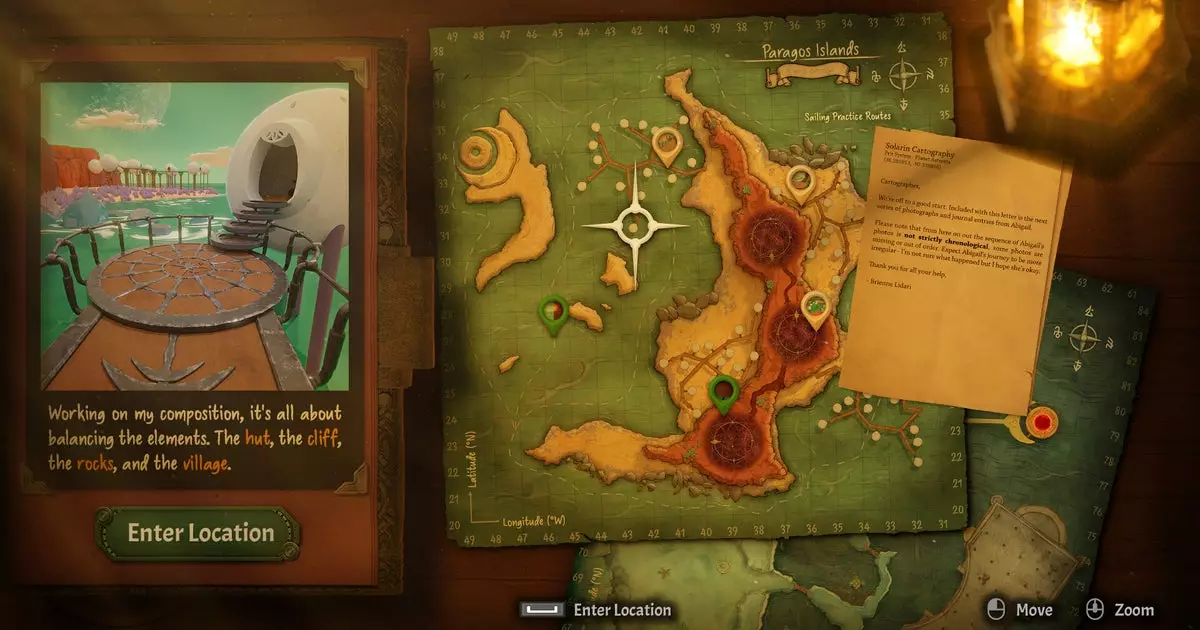“Locator” emerges as an engaging detective puzzler that invites players into the shoes of an interstellar cartographer on a quest to locate the missing archeologist, Abigail Lidari. Combining elements of puzzle-solving and geographical exploration, this game promises an experience tailored for both dedicated fans of titles like “Obra Dinn” and those who appreciate beautifully crafted alien environments. The essence of the game lies in its innovative approach to navigation and deduction, stimulating the intellect while immersing players in a stunning visual landscape.
The gameplay mechanics of “Locator” resonate with the popular geography game Geoguessr, requiring players to analyze sets of photographs alongside Abigail’s journal entries. The challenge escalates as players must carefully compare these materials to identify specific locations on exquisitely designed maps. The process begins with a straightforward identification of landmarks, evolving into a deeper exercise in deciphering cryptic journal notes. It’s not merely about geographical accuracy; it’s about understanding the context and intent behind the observations made by Abigail, adding a compelling narrative layer to the gameplay.
An early challenge that highlights this theme involves locating unique cyclopean statues within an expansive alien tomb. Through playful sketches and humorous names that Abigail has assigned to these statues—such as Milton and Orville—players gain insight into her personality and the isolation she experiences on this distant planet. This personal touch enriches the gameplay and fosters a deeper emotional connection between the player and the character.
The premise of “Locator” also touches on profound thematic concepts related to mapping and reality. The notion of the “cartographer’s folly” or fictitious geographical entries raises intriguing questions about representation and perception. Such ideas remind players that a map is but a simplified model, one that may distort or obscure the true nature of the territory it aims to depict. This notion resonates with Alfred Korzybski’s famous adage, “the map is not the territory.” This philosophical backdrop adds depth to “Locator,” prompting players to engage with the game on a more introspective level.
As players guide themselves through the world that Abigail once roamed, they confront the challenge of empathy and understanding through the lens of geography. They become not just players but interpreters of Abigail’s journey, piecing together fragments of her experience based solely on the scant details she has left behind.
While the exact release date remains undisclosed, the anticipation surrounding “Locator” continues to grow. Enthusiasts are eager to uncover how the game will unfold and how it will further integrate these substantial themes into its narrative and gameplay structure. The combination of geographical knowledge, investigative reasoning, and evocative storytelling positions “Locator” as a promising addition to the realm of interactive storytelling, making it a title worth keeping an eye on for gamers and puzzle enthusiasts alike.

